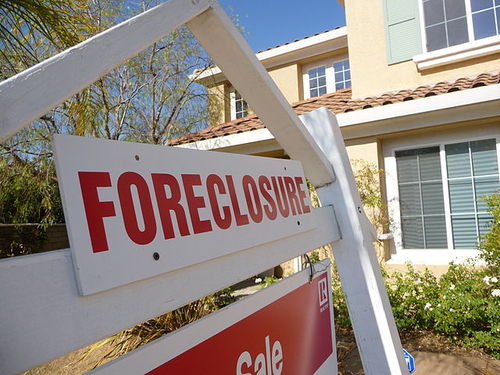Michigan’s Foreclosure Redemption Laws and You
While the foreclosure crisis is largely in the past, foreclosure auctions are still a great way to obtain new investment properties at below-market prices. If you’re buying foreclosed property in Michigan, there are some new laws on the books that could save you from financial and emotional pain. On the flip side, if you are an owner whose property is entering foreclosure, the new laws in Michigan may help you hold on to your home.

Before we wade too far into the weeds, let’s clarify some terms:
Foreclosure is when a lender forces the sale of a borrower’s assets to cover a debt the borrower owes but can no longer pay. The most common example is a home foreclosure, where a bank forces the sale via auction of a borrower’s house, to cover an unpaid mortgage.
Redemption is when a borrower pays an amount equal to the highest bid at the foreclosure auction, plus interest and fees, thus regaining the auctioned assets. Redemption allows the foreclosed-upon owner to buy his property back before it is officially sold to the auction winner. The period between the auction and the transfer of the assets to the auction winner is the redemption period.
In Michigan, the redemption period for a foreclosed piece of real estate varies depending on the property in question. There are four cases:
- Abandoned property: one month
- Property with more than two-thirds of debt still owed: six months
- Property with less than two-thirds of debt still owed: twelve months
- Agricultural property: twelve months
Note that the above rules apply to properties with no more than four units. Residential property must be smaller than three acres, while agricultural property must be larger than three acres.
Note also that a foreclosed owner may occupy his foreclosed property until the redemption period ends. Any experienced real estate investor can spot the problem here: a tenant with nothing to lose and no intention to redeem has six months or more to strip all valuables from his foreclosed property. Since the property is still his until the end of the redemption period, the highest bidder at the auction has no choice but to sit and watch the foreclosed owner plunders the house.
So far, everything covered is part of Michigan’s Revised Judicature Act of 1961. Effective January 10th, 2014, Public Act 104 of 2013 amends and revises the RJA to help prevent house stripping by foreclosed owners. Specifically, the winning bidder has the right to inspect the house inside and out during the redemption period.
The law lists further specifics about the inspections, but here’s the upside: if the winning bidder finds damages to the property during an inspection, he can sue the foreclosed owner for possession of the property. Again, the law lists specifics about what constitutes damage. Further, I’m not giving legal advice, and you should always consult your attorney before taking legal action. However, I believe it’s important that everyone in the foreclosure process knows their rights.
At Castle, we take pride in being real estate experts. We’re always looking for new topics to address, so email us at team@entercastle.com with any subject you’d like to see us write about.
